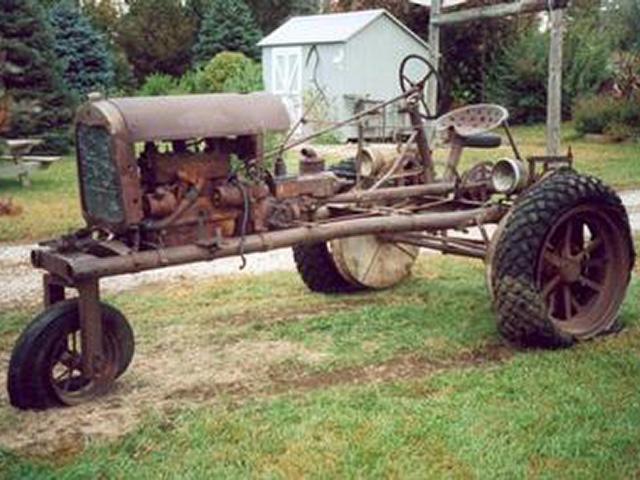Russ' Vintage Iron
Forgotten 1930s Tractor -- The Thieman
OMAHA (DTN) -- We have neighbors (and good friends) with the last name of Thiemann. I knew there was a little-known tractor company named Thieman, and once when we were visiting with them the conversation turned toward this subject.
Knowing I have some vintage iron information, they asked me about Thieman tractors. I did not have much to dazzle them with as I had never seen one in person and didn't know anything about them.
This was several years ago. I thought about this long-forgotten conversation about a long-defunct tractor manufacturer when thinking about something to write in my column this month.
Not knowing anything about Thieman tractors, I turned to the internet. A quick Google search yielded some interesting information.
The website tractordata.com said Thieman Harvester Company was the name of the manufacturer of the tractor from Albert City, Iowa. The tractor was sold as a kit by the company and came with a Ford Model A engine.
But the buyer could supply their own Ford, General Motors or Dodge engines. Because of this, every Thieman tractor is unique, according to the site.
An article from Farm Collector magazine in 2007 by Bill Vossler titled "The Thieman Tractor" details some other history of the company (https://www.farmcollector.com/…).
P[L1] D[0x0] M[300x250] OOP[F] ADUNIT[] T[]
Brothers Charles and Warren Thieman organized the company in 1921 to make ensilage harvesters. They built other items including livestock feeders and waterers, saw frames and power units.
Starting in 1936, the brothers manufactured tractors. For $500, a farmer could buy a tractor with a Ford Model A engine. However, someone purchasing a tractor still had to obtain a driveshaft and a rear end from either a Ford Model A, 1928 Chevrolet or a Dodge Four and then assemble the tractor.
For a few years in the 1930s, the company did quite well selling tractors. Nearly 150 people were employed 24 hours a day during peak season at the Thieman plant in Albert City.
Unfortunately, the good times in the tractor business for Thieman did not last very long. The need for steel, essential for World War II, ended the company's operations in the early 1940s.
Vossler's article then goes on to detail a couple of different people's experiences with Thieman tractors. It sounded like these tractors were an inexpensive option for farmers in the 1930s -- during an extremely tough economic time.
Both collectors said the Thieman was a lightweight tractor. The single front wheel also made the tractor a bit "wobbly," said the one collector.
The main job the tractor would be able to do would be cultivating row crops, but it would certainly not be the answer to heavy plowing or other tillage, according to the other Thieman tractor owner.
I have always thought it would have been interesting to see how farmers decided when to get rid of their horses and buy tractors during this period of time.
We know my great-grandpa and my grandpa had at least one tractor in 1935 -- we still have their 1935 John Deere D, which my dad and his brother restored probably 20 years ago now. I believe they also had a Fordson tractor, which very well may have been their first tractor.
I could not find any information about how many Thieman tractors were built, for how many years they were manufactured or how many are still around today. If production started in 1936 and the start of World War II was in 1941, that was only five years of production.
There can't be many Thieman tractors around today. If anyone has one of these tractors, please contact me. That would certainly make for an interesting column.
And my Thiemann neighbors would love to hear a vintage iron story about their favorite tractor manufacturer!
Russ Quinn can be reached at Russ.Quinn@dtn.com
Follow him on Twitter @RussQuinnDTN
(c) Copyright 2023 DTN, LLC. All rights reserved.




